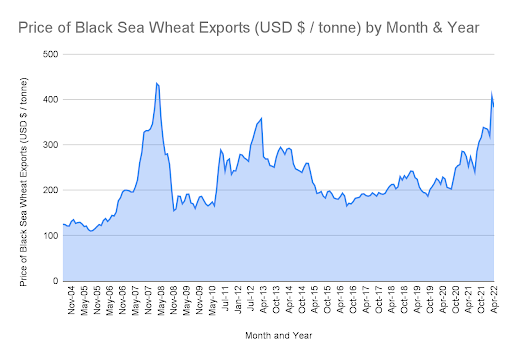Decolonizing Food Systems and Advancing a Just Resilience in the South Bay Area
By Christopher Bacon and Ava Gleicher
Raj Patel joined our SCU community for a CAH-sponsored event on April 28, 2022, to deliver a keynote address about decolonizing the food system. Dr. Patel is an award-winning author, filmmaker, and academic analyzing the food crisis and agroecological alternatives. His talk conveyed the dire state of the food system. He noted that the closest we’ve come to ending hunger was in 2014 when only 600 million people were malnourished, and 2.3 billion people were food insecure. Since then, COVID has exacerbated and together with conflict unveiled deep-rooted issues in our food system, as an additional 150 million people face hunger and the environmental effects of industrial agriculture accumulate. Dr. Patel noted that each dollar we spend in the food system yields two dollars of damage, meaning a business-as-usual scenario will ensure billions of dollars in health costs and environmental damage.

Caption: Moderator and Panelists discuss food justice, climate change, and racism at Santa Clara University (L to R: Dr. Chris Bacon - Moderator, Dr. Raj Patel - keynote, Paola Felix (‘23, Santa Clara University Student), Emily Schwing (Veggielution), and Fernando Fernandez Levia (Sacred Heart Community Services, La Mesa Verde Program). Photo credit: Ava Gleicher
Dr. Patel expanded on his well-known list of food system problems to identify six root causes of today’s food crisis: COVID, climate change, conflict, colonialism, capitalism, and “craven stupidity.” To exemplify the intersecting nature of these causes, Dr. Patel described the Russian wildfires in 2010 and traced their consequences. While these fires were fueled by climate change, they were exacerbated by capitalism: over-cultivated fields were more likely to burn than those that uphold USSR restrictions on crop rotations and over-cultivation. And when Glencore—an enormous grain trader—recognized that these fires would prevent them from fulfilling grain contracts, they lobbied the Russian government to impose an export ban on grain, allowing them to void their contracts. This export ban combined with the war in Ukraine and rising fuel prices significantly increased grain prices (see United Nations’ data on wheat export prices from Russia, Ukraine, and Kazakhstan) and exacerbated hunger in previously colonized countries whose diets changed as they became dependent on grain exports.

As Dr. Patel notes, these issues are not bugs in the system, they are features: “our food system is guaranteed by its very nature to spit out more hunger, more environmental destruction, more exploitation, and more disease.” Instead, Dr. Patel proposes we decarbonize, de-monopolize, and support debt relief, diversification, and decolonization. He explains that food sovereignty and agroecology are integral for transformational change.
After the keynote, CAH Fellow and SCU Associate Professor of Environmental Studies Chris Bacon moderated a roundtable discussion showing how Bay Area food justice advocates and researchers are organizing together to build back resilient and equitable food systems in Santa Clara County. Paola Felix (Santa Clara University), Emily Schwing (Veggielution), and Fernando Fernandez Levia (La Mesa Verde at Sacred Heart Community Services) joined Raj Patel in the discussion.
Both Schwing and Levia emphasized that community was their most important asset in fighting food insecurity. Levia shared how the community helped overcome fear during the early stages of COVID and how the gardeners in the La Mesa Verde network showed up for one another, saying “Hey, we’re here and ready to build more garden beds and distribute food.” Felix, who is a Food Justice Research Assistant on SCU’s Agroecology, Climate Resilience and Food Justice Lab (ACRAF) team and an SCU student, reminded us that food insecurity is not just something that happens to “other people” as she summarized research assessing student food security and basic needs on college campuses. In fact, Felix reported that about 21% of students self-reported having experienced food insecurity while attending SCU.
Patel and the panelists engaged with the audience and answered questions about COVID, colonization, resilience, and community. One audience member said that, while she “drives a hybrid, has a metal straw, and likes kale,” she perceives the mainstream to be untouched by agroecology and social movements. And she questioned how we’ll reach structural change in the face of impending crises. Dr. Patel acknowledged that it’s dangerous to “live the dream beyond the world that we find ourselves living in.”
Importantly, Fernando Fernandez Levia emphasized that he believes in the possibility of transformation and “in the power of love.” He underscored that “social media and the mainstream do not focus on what’s going on with the mutual support of people or every time communities show up to support one another or act by love.” He said that he still has hope “because he’s seen so many people acting from love. So many communities giving everything for love.” In sum, the panelists largely emphasized the importance of building trust, inclusive leadership models, and action-research partnerships as part of learning how to decolonize crisis-ridden modern food systems while cultivating justice and resilience.

Photo: Volunteers Plant an Urban Garden. credit: La Mesa Verde
Following the keynote address and round table discussion, students and faculty shared posters summarizing the findings of participatory action research conducted with the panelists, cooperatives, and international partners. In sum, the panelists largely emphasized the importance of building trust, inclusive leadership models, and action-research partnerships as part of learning how to decolonize crisis-ridden modern food systems while cultivating justice and resilience.

Photo of Agroecology-based Diversified Farm in Nicaragua. Several faculty-student posters explored how these systems can foster climate resilience. Credit: Chris Bacon

